Every day, Lagos gets tons of old phones, broken TVs, and outdated computers. People throw them away as quickly as they get new ones. But these gadgets don’t just disappear. They end up in the hands of workers who take them apart by hand. They’re trying to make a living, but they’re exposed to dangerous chemicals and harmful materials, just to earn a little money.
Fayefunmi Oluwanifemi, a documentary photographer with a deep focus on environmental storytelling, spent time at Computer Village, Alaba Market, and Arena Oshodi, where e-waste is a common sight. He saw workers handling the waste with bare hands, no gloves, no masks, just doing their best to salvage what they could.
According to him, it wasn’t just a job for them, it was survival. The conditions were harsh, and the risks were high. But they had no choice. This was their reality.
He said: “It made me think about my own relationship with technology. The phone in my pocket, the laptop on my desk things I upgrade without a second thought. I never considered where they go when I’m done with them. But the workers in Lagos, they see the end of the line for these devices every day. Their lives are connected to the very things most of us discard.
“Lagos is dealing with more than just piles of broken electronics. The e-waste is polluting the land, the water, the air. The workers, the people who live nearby they’re the ones who suffer the most. Yet, through it all, they stay resilient. They continue, despite the dangers, because they have no other option.
“What I’ve learned through this project is that e-waste is more than an environmental problem – it’s a human problem as well. The people here aren’t just dealing with pollution. They’re fighting to survive, to make ends meet, to keep going even when the world doesn’t seem to care.
“This is why I tell this story. To show that behind every discarded phone or computer is a person, a family, a community. To make us think twice about what happens to the things we throw away and who pays the price for it. In Lagos, the story of e-waste is not just about waste it’s about resilience, survival, and hope. It’s a story that needs to be told.
“This project aims to share the voices of those living in this crisis, highlighting their resilience and creativity, while pushing for meaningful change.
“I focused on the individuals who work with e-waste, many of them in informal settings turning what others see as trash into resources. By sharing their stories, I hope to raise awareness of the challenges they face and spark action toward sustainable solutions.”
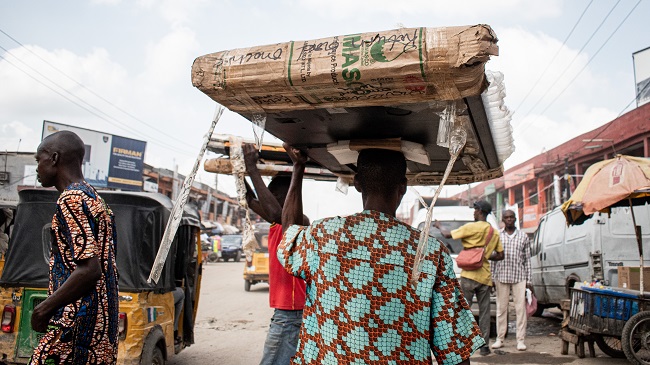
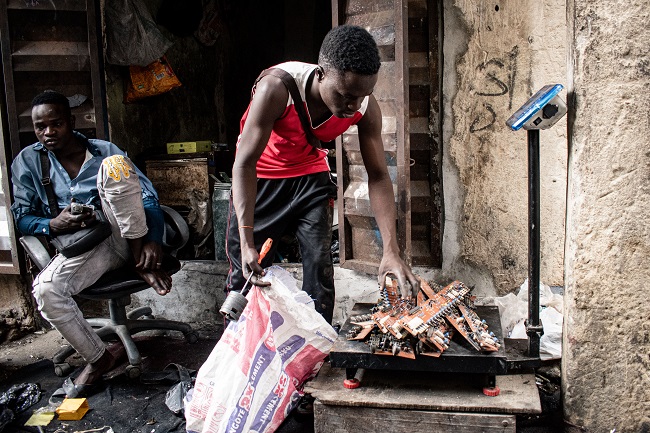
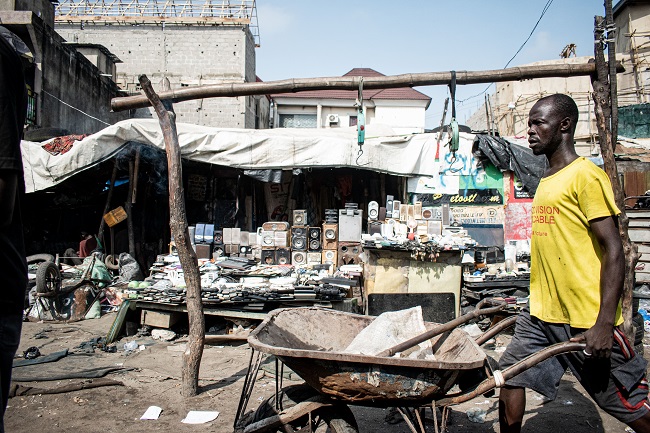
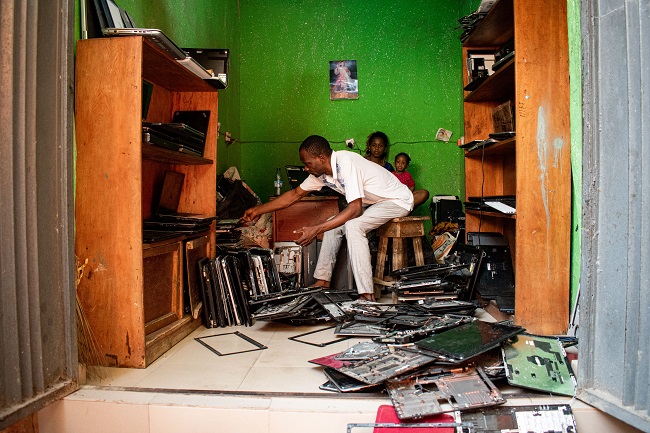
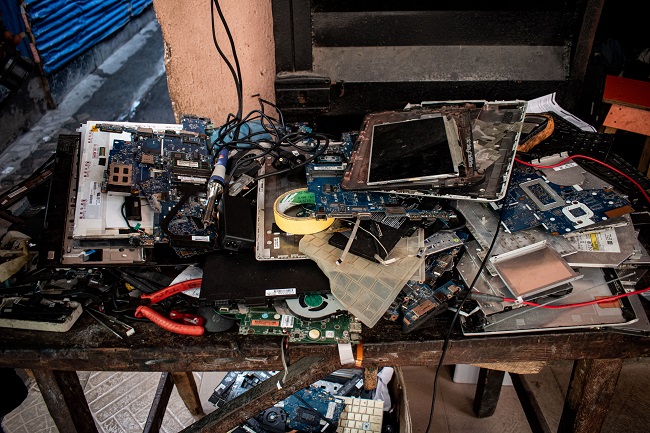
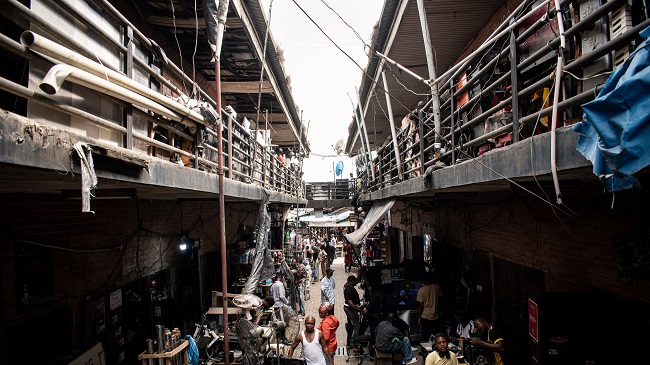
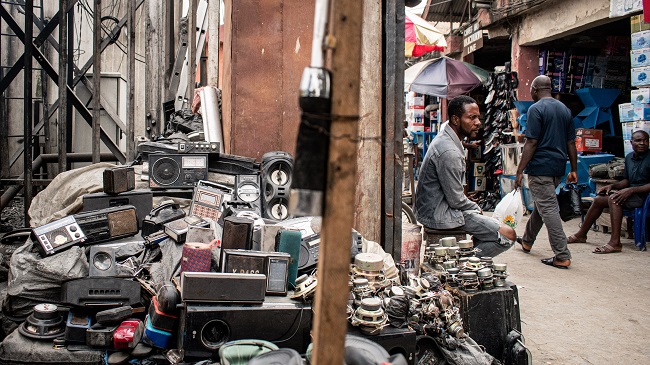
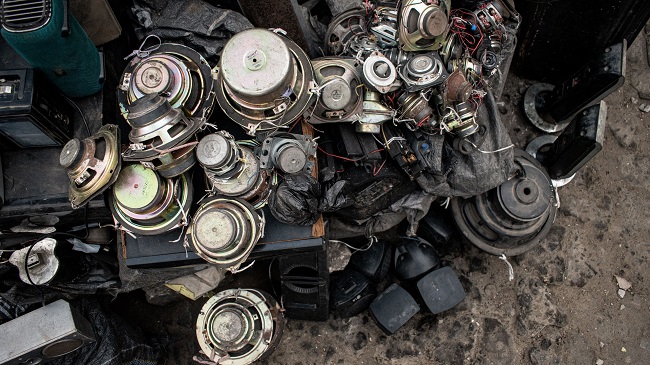
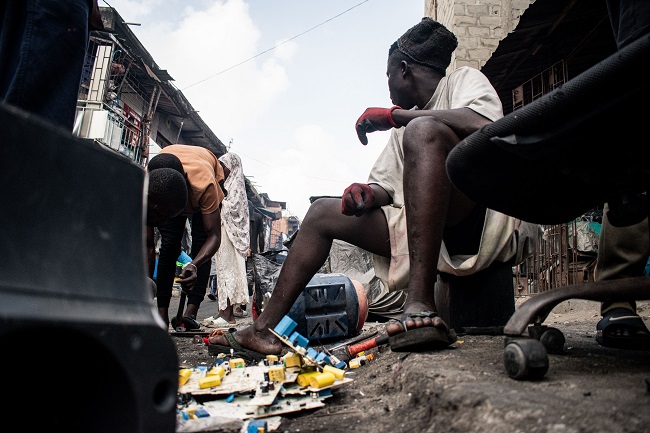
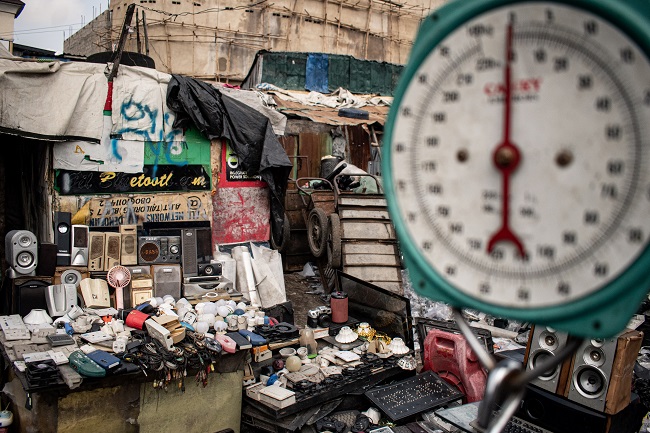
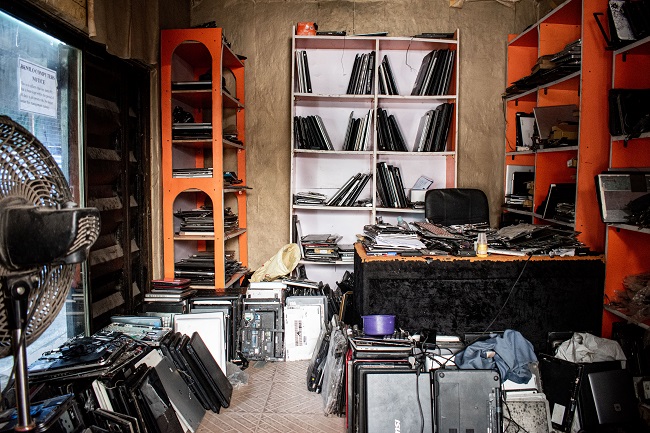
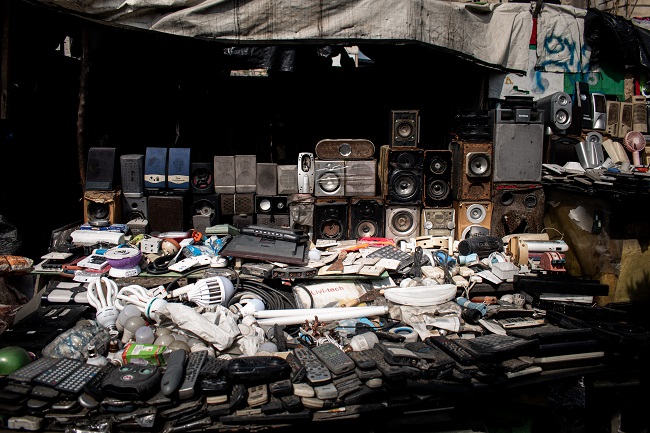
Photo credit: Fayefunmi Oluwanifemi
